Continue reading for our analysis...
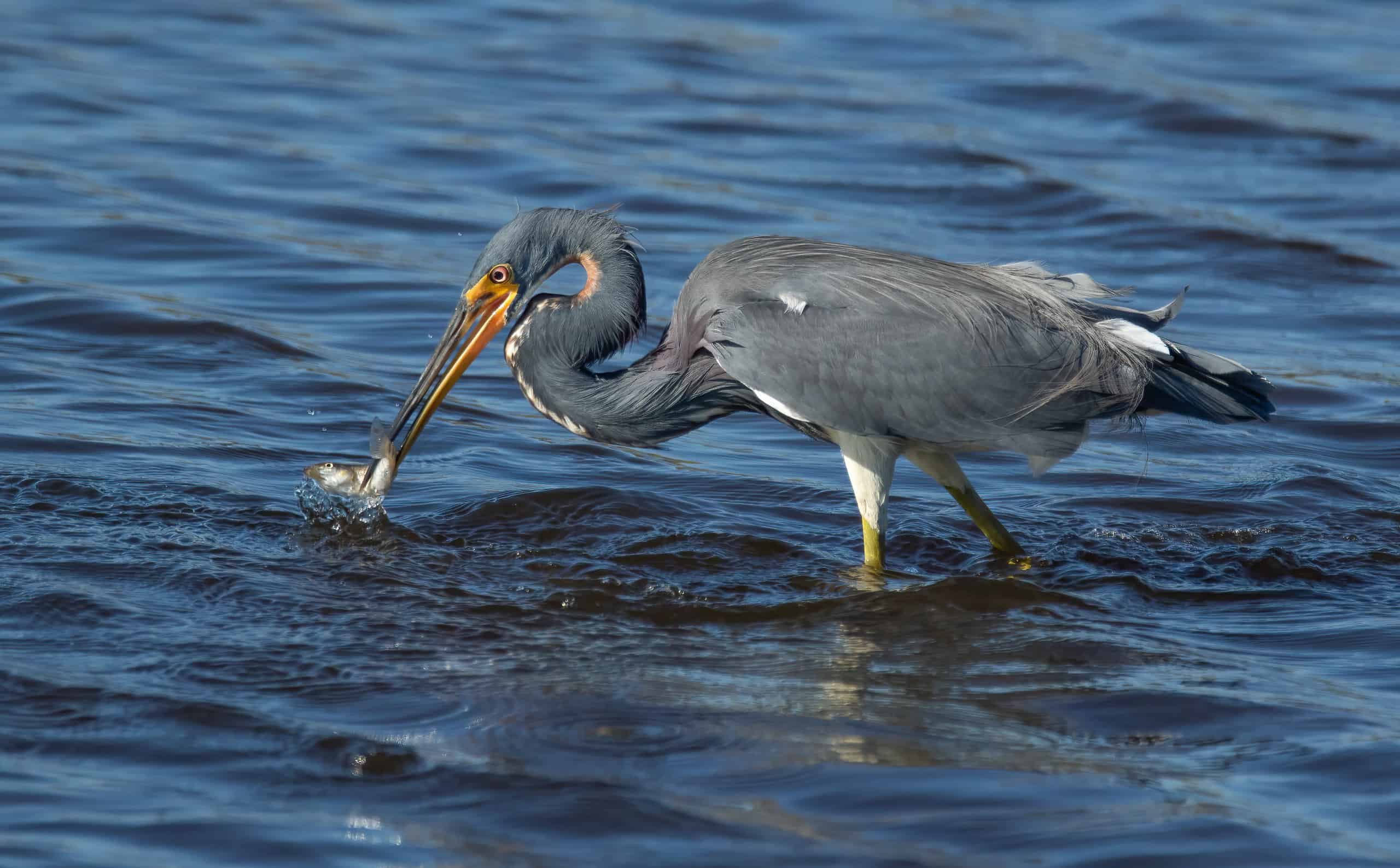
A hunting heron is an impressive sight. This clip features a heron in Florida gulping down an alligator whole. To be fair, it is a baby alligator, but impressive nonetheless!
Baby alligators have quite an appetite – they can eat up to 23% of their body weight in a single meal. Their diet consists mostly of insects, shrimps, crabs, small fish, and tadpoles. Baby alligators also are born with a natural instinct to swim, and they can often be found paddling around in ponds and streams. This is a perfect place for herons, who hunt for their meals there.
They grow rapidly, but in this case, not rapidly enough to not be prey for herons. Keep reading to learn more about the hunting and eating habits of these birds of prey!
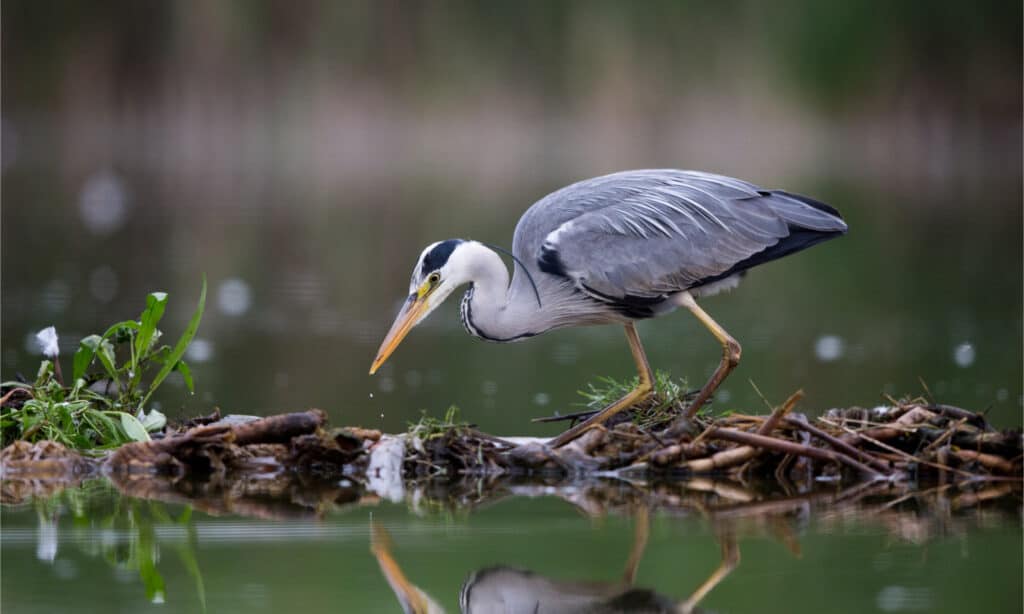
Herons are carnivores who could even be considered largely piscivores.
©Budimir Jevtic/Shutterstock.com
What Do Herons Eat?
Herons are carnivores who could even be considered largely piscivores. Their diet consists almost exclusively of fish. However, they are opportunistic hunters and do eat other animals, including amphibians, crustaceans, reptiles, small birds (and their eggs), insects, small lizards, and small mammals.
Herons consume an immense variety of fish of all sizes. They will eat not only large bass and carp but also tiny goldfish and minnows. Additionally, they eat flounder, tilapia, perch, and many more. Generally, the types of fish herons eat depend on their specific habitat and what is accessible to them.
It’s important to keep in mind that there are about 64 heron species. Their diets do differ. Some heron species are generalists who eat any meat they can find. Others are specialist feeders who won’t eat anything other than fish or crustaceans.
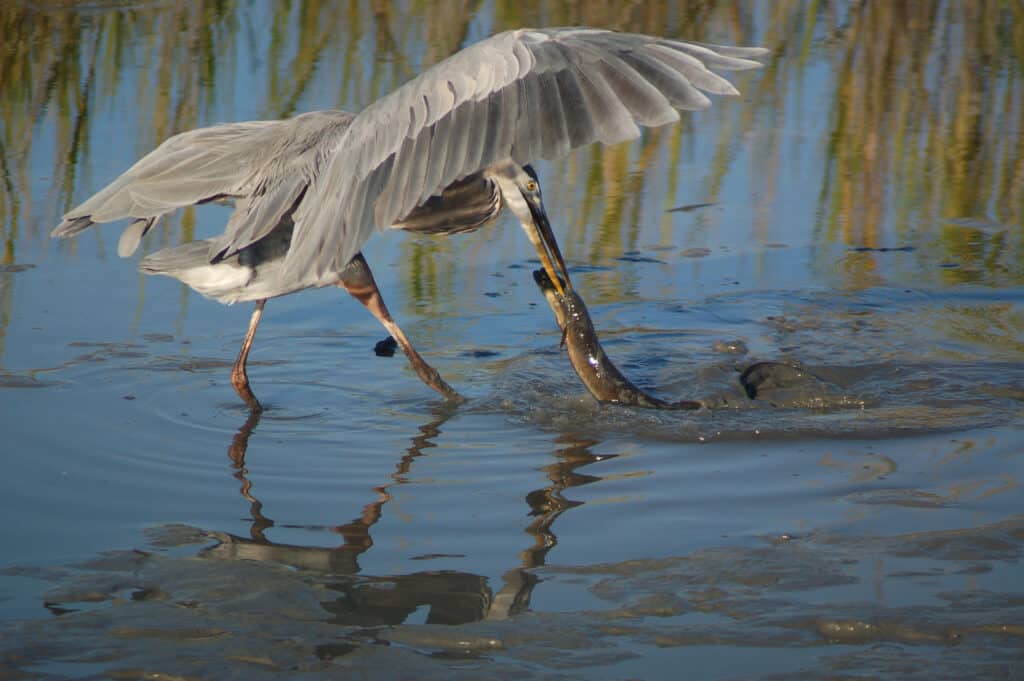
Herons spend up to 90% of their waking hours searching for food.
©Eric Krouse/Shutterstock.com
How Do Herons Hunt?
It’s fairly uncommon for a heron to actually be seen by a human while on the hunt. This is because they are very covert while doing so and tend to hunt at dawn or during the night when you are less likely to witness the process. However, hunting does take up a large portion of the heron’s time. They spend up to 90% of their waking hours searching for food.
Typically, what a heron will do is find a perch near shallow, slow water. The spot they find is typically one where they can easily camouflage themselves or hide. When they spot suitable prey in the vicinity, they will attack. Typically, they either catch it and bludgeon it on a rock or spear it to death with their sharp beaks.
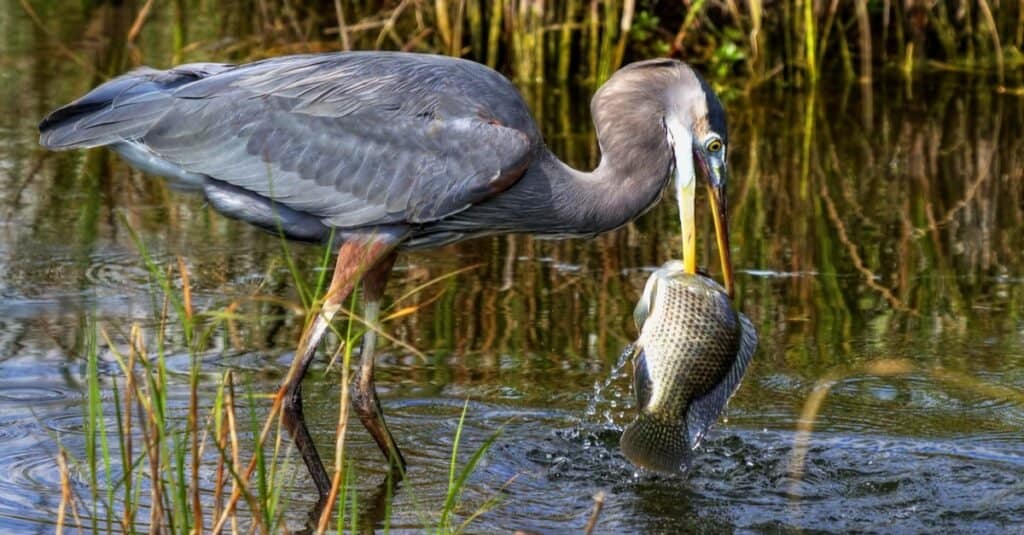
Great Blue Heron
catches a huge fish. When herons kill their prey, they usually swallow them whole.
©David Byron Keener/Shutterstock.com
How Do Herons Eat?
When herons have killed their prey, they usually swallow them whole, as you can see in the video. In some cases, they will swallow them alive!
This means that herons also eat the bones of their prey. The nutrients in these bodies, including calcium, provide the birds with great nutrition.
Herons have a unique ability to swallow extremely large animals. People have observed these birds swallowing fish that are bigger than their heads. A heron can fit such a large animal down their throat due to a loose digestive tract and stretchy stomach and esophagus.
However, herons have occasionally choked and died when trying to swallow extremely large animals.
Herons are able to digest almost all of the animals that they swallow. However, they will regurgitate pellets that include indigestible materials.
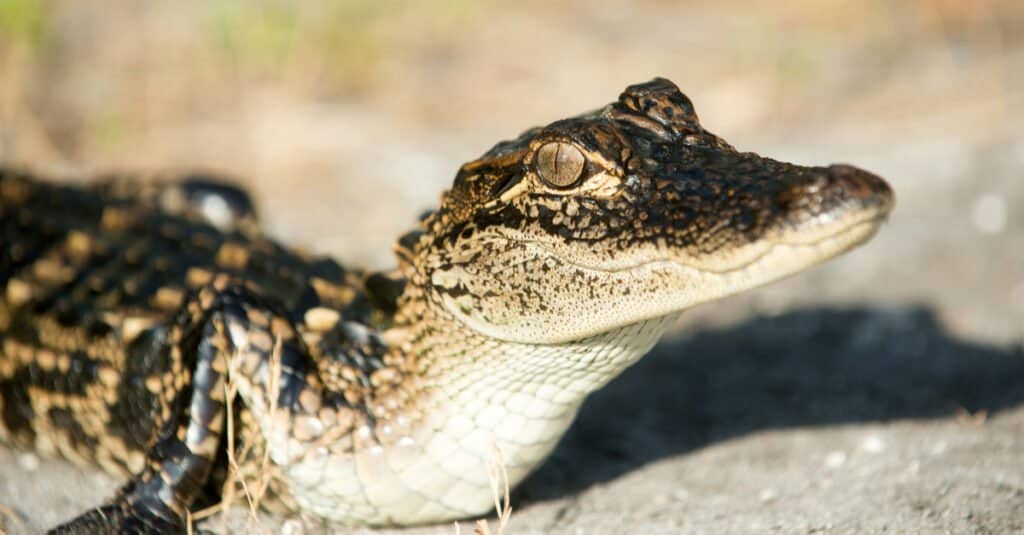
This clip features a heron in
Florida
gulping down an
alligator
whole. To be fair, it is a baby alligator, but impressive nonetheless!
©Tony Campbell/Shutterstock.com
Herons’ stomachs secrete acid that protects their bodies from being punctured by bones from their prey. Since they swallow prey whole, the bones aren’t exposed at first. By the time they are, the acid has softened the ends of the bones.
Why Do Birds Hang Around Alligators?
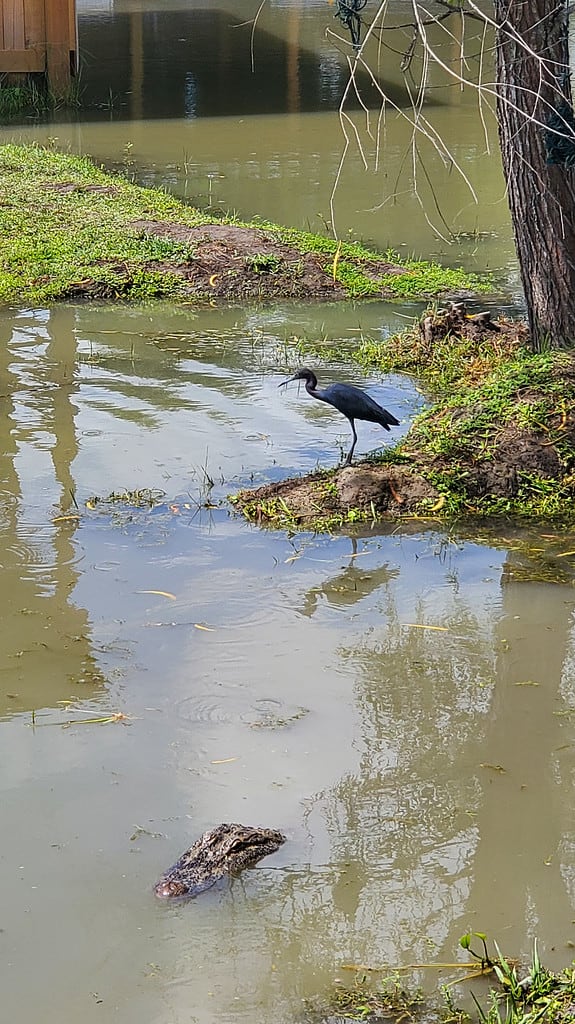
Many birds, like this black heron, utilize alligators to keep other poaching animals away from their nexts.
©Tom Leddy/iStock via Getty Images
It may seem to be a silly question, but if you have spent time near zoos or swamps that have alligators you have probably seen birds sort of hanging around them. And the reasons for this are beneficial not only to the birds but also to the alligators!
For birds like herons, spoonbills, and storks, they have found over time that building their nests in alligator-infested areas comes with a nice defensive perk. The huge reptiles will most likely keep away animals, like raccoons and other nest thieves, from their precious eggs.
On the flip side of the equation and what keeps the two species close, is that the alligator does not mind being in the proximity of the nests of these large birds. Big birds mean big eggs, and on occasion eggs will fall or be pushed out of the nests and into the waters below. Also, weak, newly hatched birds might not survive their first take-off flight attempts and find themselves plummeting into alligator territory.
Altogether, the relationship is enough to keep the birds and gators hanging around with each other.
Thank you for reading! Have some feedback for us? Contact the AZ Animals editorial team.






